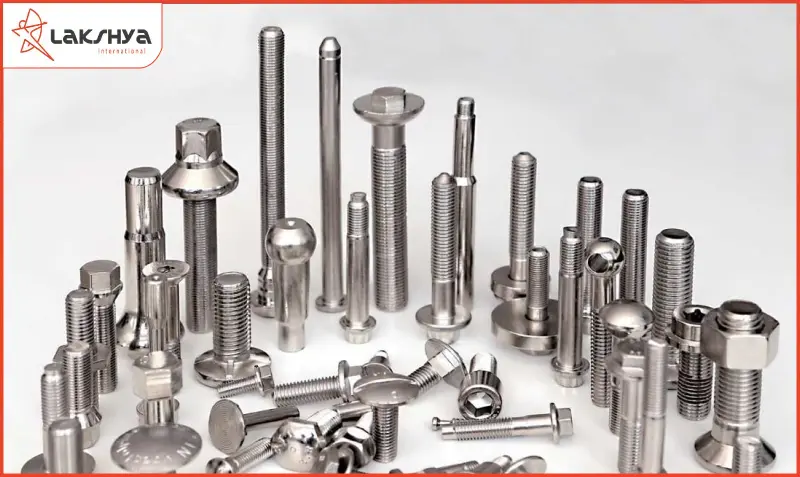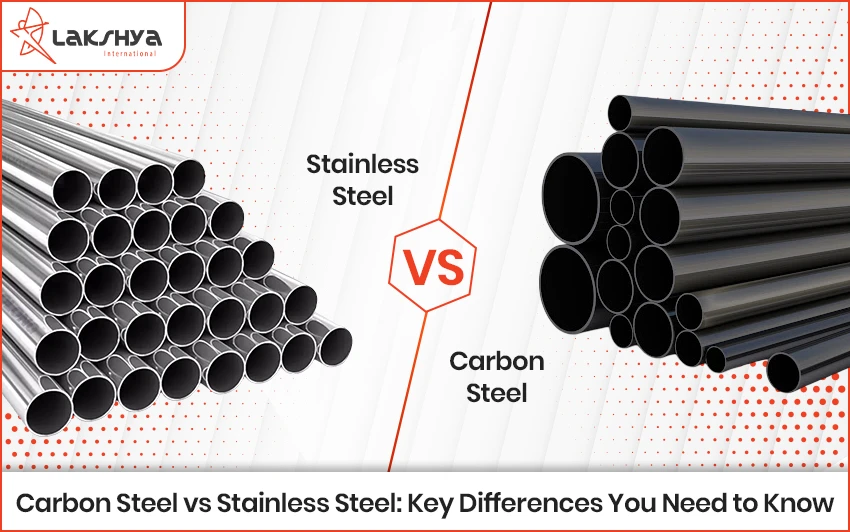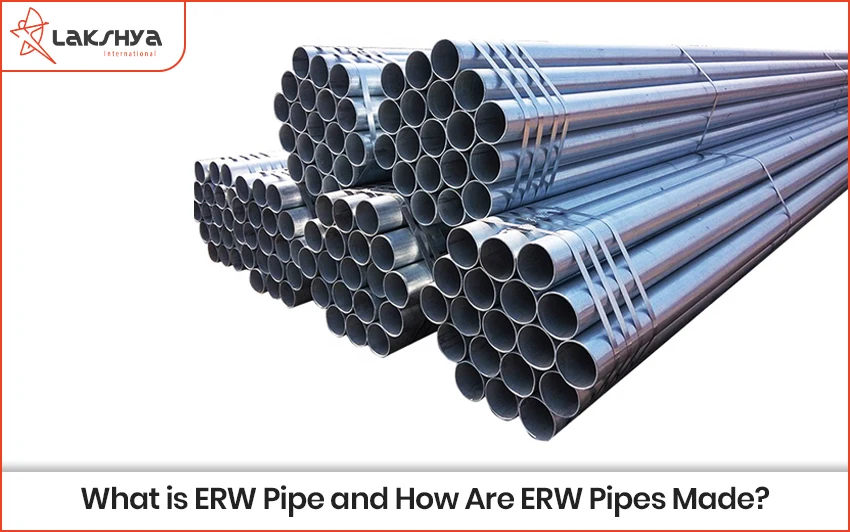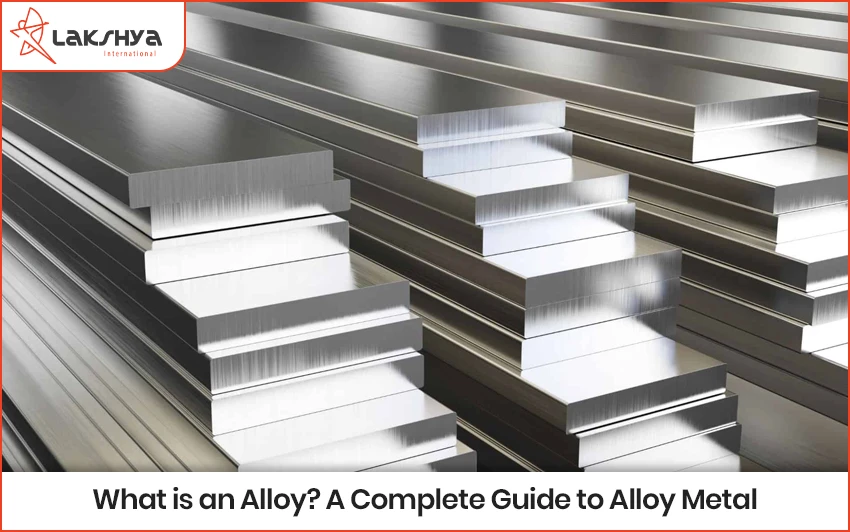Choosing the right fasteners for projects can be challenging due to many important factors. In construction and manufacturing, even small components like Stainless Steel Fasteners are important for ensuring buildings and products last long and stay strong. Steel fasteners are known for being tough, resistant to rust, and durable, making them essential in plumbing and engineering to securely connect pipes and parts.
SS Fasteners are also important—they connect two sections of pipe or equipment tightly to prevent leaks and ensure everything stays firmly in place. They come in different sizes and shapes for various uses, helping maintain reliability and safety.
Lakshya Steel is a top manufacturer of Stainless Steel Fasteners in India. This blog will cover key factors and methods for choosing the best stainless steel fasteners, especially for high-temperature applications.
What are Stainless Steel Fasteners?
Stainless steel fasteners are strong and resistant to rust and corrosion because they contain at least 10% chromium, along with nickel and molybdenum. This alloy forms a protective layer that shields it from moisture and chemicals. These fasteners are used widely in construction and marine settings for their durability, non-magnetic properties (in some types), and ability to withstand harsh conditions. They come in various grades and finishes, suitable for industrial and decorative uses like structures, machinery, and outdoor installations, ensuring reliability and long-lasting performance.
Why Choose Stainless Steel Fasteners?
Stainless steel is an alloy primarily made of iron, nickel, and chromium, renowned for its exceptional combination of tensile strength and resistance to wear and tear. Choosing stainless steel fasteners ensures long-term reliability, aesthetic appeal, and cost-effectiveness, making them a preferred choice across diverse industries and applications.
Types of Stainless Steel Fasteners
Choosing the right stainless steel fastener is crucial for maximizing project durability and longevity. Stainless steel, valued for its robustness and lifespan, justifies its higher cost with superior performance. Here are key types to consider:
304 Stainless Steel Fasteners
304 stainless steel is widely used due to its corrosion resistance, oxidation resistance, and versatility in temperature ranges. It’s cost-effective and suitable for various applications.
316 Stainless Steel Fasteners
316 stainless steel is commonly used and offers enhanced corrosion resistance compared to 304. It’s ideal for corrosive environments like near the ocean or in chemical plants. However, it’s typically more costly than 304 stainless steel due to its advanced protection.
H3- 430 Stainless Steel Fasteners
Select 430 stainless steel for strong corrosion resistance, better than 316 steel. It’s pricier and less common but ideal for high-corrosion environments.
303 Stainless Steel Fasteners
303 stainless steel is highly pure but lacks chromium, making it resistant to rust but less effective against corrosion. It’s suitable for specific uses but not ideal where corrosion is a major concern.
201 and 202 Stainless Steel Fasteners
201 & 202 stainless steel, they are non-magnetic and resistant to rust, but they provide less corrosion resistance compared to other types. While they may suit certain projects if located, their scarcity and lower corrosion resistance make them less popular choices.
Key Factors for Selecting Stainless Steel Fasteners
When choosing stainless steel flanges and fasteners, several key factors ensure you get the best performance and longevity:
- Quality and Durability: Opt for high-quality stainless steel to ensure longevity and superior strength compared to standard alternatives. Choose grades tailored for specific applications, like stainless steel for environments requiring corrosion resistance.
- Corrosion Resistance: Stainless steel is renowned for its ability to resist corrosion, making it ideal for harsh environments. Select alloys with higher chromium and nickel content, such as 304, 316, and 317, for enhanced protection against corrosive substances.
- Temperature Tolerance: Consider the temperature resistance of the stainless steel grades available. Different alloys have varying capacities to withstand temperature fluctuations, so match the grade to your application’s thermal demands.
- Low Maintenance: Stainless steel requires minimal upkeep compared to other materials. Grades like 304 and 316 are effective against chloride solutions and acids, resistant to oxidation and rust, ensuring durability over time with little maintenance.
- Cost Efficiency: While comparing prices, prioritize quality to avoid compromising on performance. Look for reputable suppliers offering competitive pricing and reliable customer service to ensure you get the best value for your investment in stainless steel flanges and fasteners.
Conclusion
Choosing the best stainless steel fasteners is crucial for ensuring your project lasts and performs well. Stainless steel is known for its strength, resistance to corrosion, and durability, even though it can be more expensive than other materials. At Lakshya Steel, we guarantee that our stainless steel products meet strict industry standards, providing reliability in tough conditions with minimal rusting. When selecting stainless steel, consider how it expands with heat, especially in high-temperature settings, to avoid issues like loosening or cracking due to temperature changes.
For projects needing strong performance in high temperatures, contact us today to discover our full range of stainless steel fasteners..




